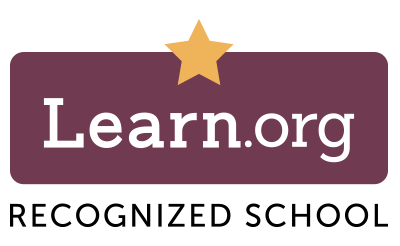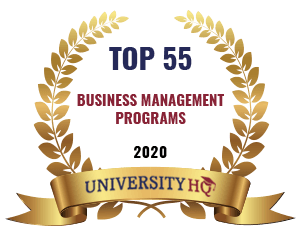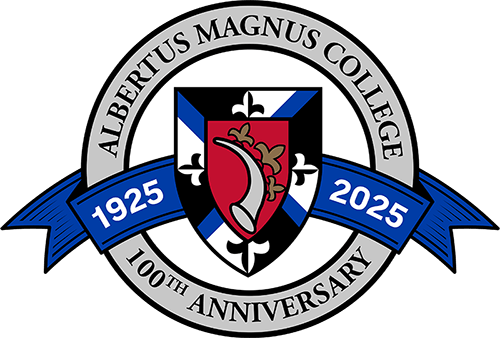Master of Public Administration
The Albertus Magnus College Master of Public Administration (MPA) is a 30-credit degree program designed for working professionals seeking a long-term career working for nonprofits, non-governmental organizations (NGOs), or government agencies. The MPA program is based on an interdisciplinary approach that enables students to lead, implement policy, solve problems, and improve efficiency in nonprofit organizations, institutions, and different levels of government.
What Makes Master of Public Administration at Albertus Different?
Engaged
Students
- Hands-on, experiential learning
- Interdisciplinary perspectives
- Emphasis on collaborative work
Great
Teaching
- Personally invested professors
- Small class sizes
- Innovative, well-rounded programs
- Resources and opportunities for research
Vibrant
Communities
- Lively extracurricular activities
- Campus-wide events
- Service and community engagement
Successful
Outcomes
- Active career counseling
- Opportunity-building networks
- Access to internships and professional experiences
Master of Public Administration Student Perspective
Nicholas Sherwood is an accomplished, decorated, and progressive police leader with more than 22 years of service. Currently, he serves as one of the Deputy Chiefs of Police for the Meriden Police Department, where he oversees policy management, professional development, administration, and professional standards for the agency.
Nicholas’s education accomplishments include earning an Associate’s Degree in Criminal Justice from Middlesex Community College; a Bachelor’s Degree in Management from Post University; and a Master’s Degree in Public Administration from Albertus Magnus College. Nicholas is scheduled to begin classes in July of 2025 to pursue a doctorate degree in Law and Policy from Northeastern University.
Nicholas is a proud veteran of the US Air Force, where he served as a noncommissioned officer in the Security Forces.
When Nicholas is not pursuing higher education or working, he enjoys spending time with his wife, two children, and two dogs, or training in and coaching CrossFit.

Create Your Flexible Master of Public Administration Schedule
Offered in an accelerated format, most students can complete their Master of Public Administration degree in a year and a half while only having to take two classes at a time.
- Take 1 to 2 classes every 8 weeks
- Work from the comfort of your own home
- Have the ability to work on assignments on your own time, at your own pace
Master of Public Administration Student Perspective
“The program aligned well with where I was professionally, and I knew it would equip me with the necessary tools for a career in public service.”

My experience was very pleasant while doing the MPA program. The classes were well structured and the instructors are there to help you every step of the way.
Evell Concepcion, Bachelor of Science in Computer Information Systems ‘12, Master of Business Administration ‘14, Master of Public Administration ‘20
Program Director, Patricia Birungi, Ph.D.
“Our MPA program is perfect for individuals who are interested in careers in public
service or the non-profit sector.”
Visit Profile
Dr. Patricia Birungi Spoke with Host Natasha Lubczenko on CT Buzz

The Albertus Master of Public Administration Faculty


Where Will Your Master of Public Administration Degree take You?
According to the U.S. Bureau of Labor Statistics, the nonprofit sector is the third largest industry in the U.S. and there are 30,000 nonprofit organizations in the state of Connecticut. The Albertus Magnus College Master of Public Administration program is intended to prepare students for productive and rewarding careers in nonprofit management and public sector organizations.
Possible career paths with a Master of Science degree in Master of Public Administration include:
Public/government sector
Nonprofit sector
Private sector
Master of Public Administration Courses
The MPA program has two components. The first component requires seven core courses that provide a student with the basic concepts and methods of public administration. The courses offer an experiential learning opportunity in the community as well as an examination of quantitative tools for policy analysis that leads to a capstone project. The second component requires the completion of five elective courses, all suited to the student's career interests or particular substantive area:
Students who successfully complete the MPA should be able to demonstrate:
- Lead and manage nonprofit and public sector initiatives;
- Participate and contribute to the policymaking process;
- Analyze, synthesize, think critically, solve public problems and make decisions;
- Articulate and apply a public service perspective;
- Communicate and interact productively with a diverse and changing workforce and Citizenry.
Interested in learning more about the diverse courses offered at Albertus?
I believe the classroom experience should be one in which innovative ideas are exchanged and shared. I am a strong advocate of experiential learning through practicum experiences at both the undergraduate and graduate level, whereby students are given an opportunity to apply theory to practice in solving real-life problems.
Patricia Birungi, Ph.D., Director, Master of Public Administration Program
Master of Public Administration Admission Requirements
To be admitted to the Master of Public Administration program, applicants must submit the following:
- A completed application and a $50 non-refundable application fee;
- A Bachelor’s degree from a regionally accredited college or university with a minimum cumulative G.P.A. of a 3.0 on a 4.0 system;
- Official transcripts reflecting conferral of prior degree (a minimum of a bachelor’s degree for master’s programs.) All transcripts are to be submitted from the original institutions;
- Proof of immunization in accordance with Connecticut State requirements;
- Two letters of recommendation from former professors and/or professional associates;
- An essay (500–600 words, double spaced) explaining professional career interests, reasons for applying to the program, and educational expectations of the program;
- For applicants who intend to use Department of Veteran Affairs (VA) Educational Benefits
- Military, university and college transcripts
- Certification of Eligibility letter or, for reservists, Notice of Basic Eligibility
- Veteran’s Intent to Register form;
- For non-native English speakers, minimum TOEFL score of 575 paper-based, 80 internet-based, or 213 computer-based.
You can't look at government and nonprofit sectors without knowing that our communities could use a generation of students who are equipped to meet the demands of public policy in an ethical and responsible way.
Professor William A. Aniskovich, J.D.
Become Part of the Albertus Master of Public Administration Community
Have questions about Master of Public Administration? Ready for the next step?
Let us know how we can help plan your future.
Request Master of Public Administration Undergraduate Information
Request Master of Public Administration Graduate Information
The Albertus Master of Public Administration Degree Mission Statement
Vision Statement
The Tagliatela School of Business and Leadership seeks to be a respected educational leader within the regional business community. We will provide high-impact academic programs and experiences aligned with in-demand fields. Our programs will challenge students to develop practical skills and personal values that empower them to succeed in a wide range of business professions.
Tagliatela School of Business and Leadership Mission Statement
The mission of the Tagliatela School of Business and Leadership is to provide a superior business education in innovative, accessible and technologically advanced formats to students from diverse academic and socioeconomic backgrounds striving to be ethical, entrepreneurial and successful in a dynamic economy through quality teaching, service and engagement with the business community.
Our Core Values
Student-centered learning
Honesty
Mutual Respect
Competency-based educational focus
Technological Innovation
Business Community Engagement/Partnership
Program Mission
The Master of Public Administration (MPA) program is dedicated to developing professionals equipped with the knowledge, skills, and leadership abilities necessary to drive and elevate public service in today’s dynamic, multi-sector environment. The program emphasizes essential competencies such as strategic problem-solving, effective communication, thorough analysis and implementation of public policies and programs, a results-driven mindset, fostering public-private partnerships, and upholding ethical principles in public management and leadership.
The Albertus Magnus College (MPA) program provides a comprehensive understanding of the pivotal role public administrators play in the policymaking process while cultivating the leadership and management skills required to excel in government, nonprofit, and private sector roles.

